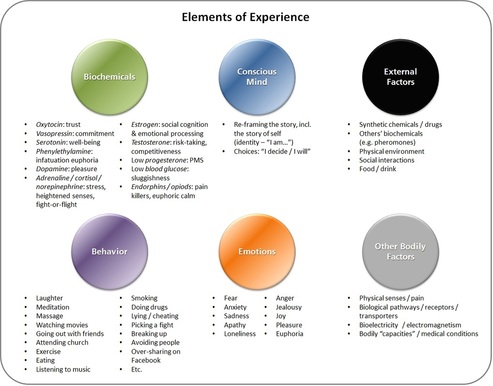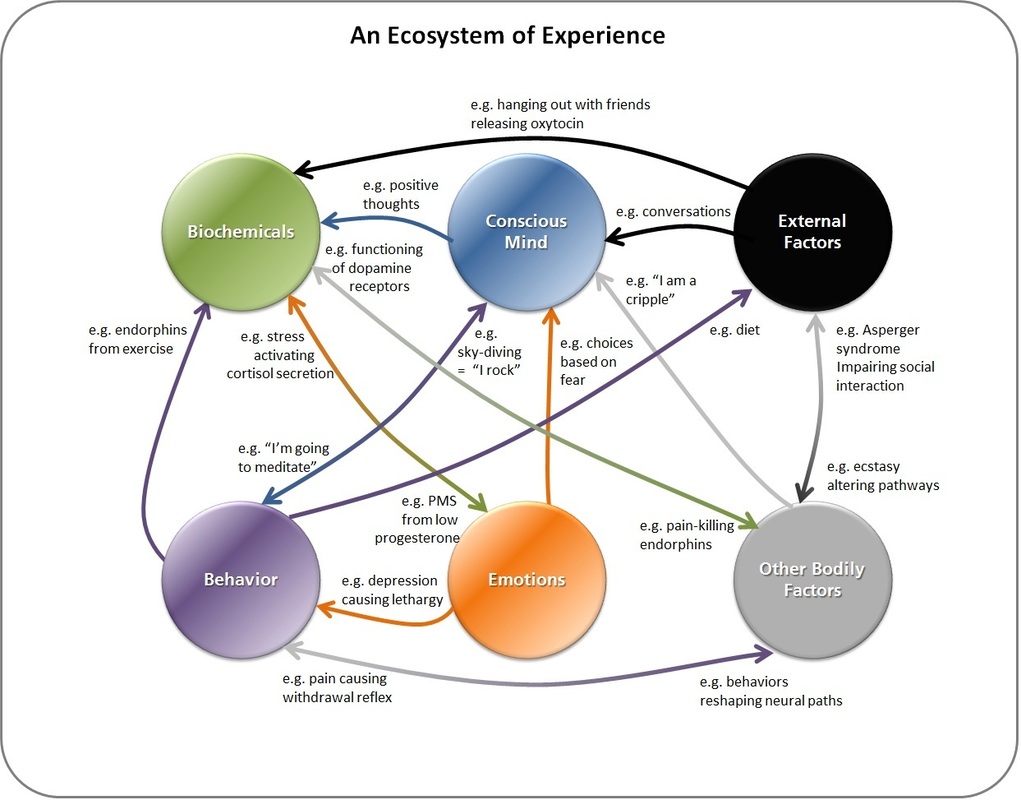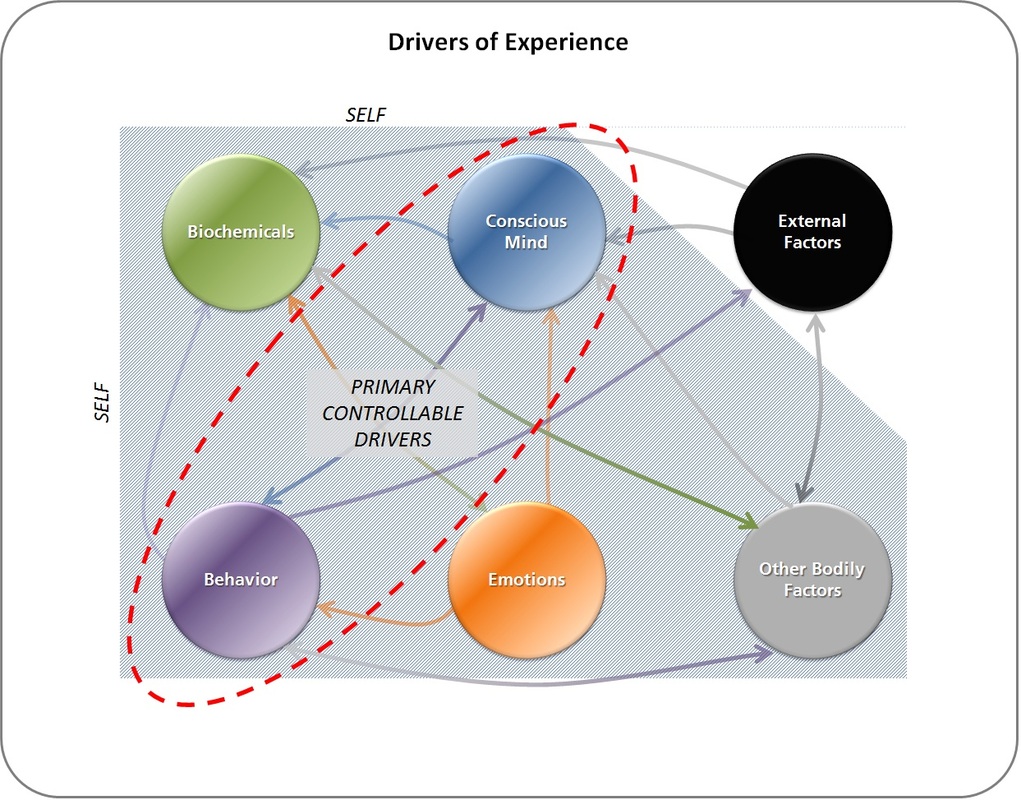I got interested in the topic after a series of moments where I found myself noticing myself experiencing emotions that were clearly biochemical in nature – euphoria after drinking caffeine in the morning, mildly adrenaline high during routine presentations, irritation after the reason for the anger had dissipated. Ten years ago, I would have conflated the experienced emotion with some subconsciously crafted story that was somewhat coherent with the data to serve as the rationale. Today, in contrast, I sometimes find watch myself experiencing these emotions from a distance. After noticing this, and also reading literature on how trust and infatuation have a chemical basis, I asked myself the question: Are all emotions chemical in nature?
A few examples:
- Exercise and laughter release endorphins (Source 1 | 2)
- Eating raises blood sugar while the chewing releases endorphins (Source 1 | 2)
- Caffeine and alcohol release endorphins (Source 1 | 2)
- Social isolation produces cortisol (Source)
- Social interactions release oxytocin, reducing cortisol (Source)
- Music can also reduce cortisol levels (Source)
- Falling in love has a chemical basis, a cocktail of dopamine, vasopressin and oxytocin (Source)
- Our physiological emotions are mediated by chemicals
- A whole slew of things influence our biochemistry
- We have limited direct control over this ecosystem
- How we think and how we act are our main levers
- One significant category of action is introducing and interfacing with external elements, notably other people
- A complicating factor to be aware of is the extent to which our thoughts and behavior are swayed by chemicals, emotions, and other variables largely outside of our control




 RSS Feed
RSS Feed